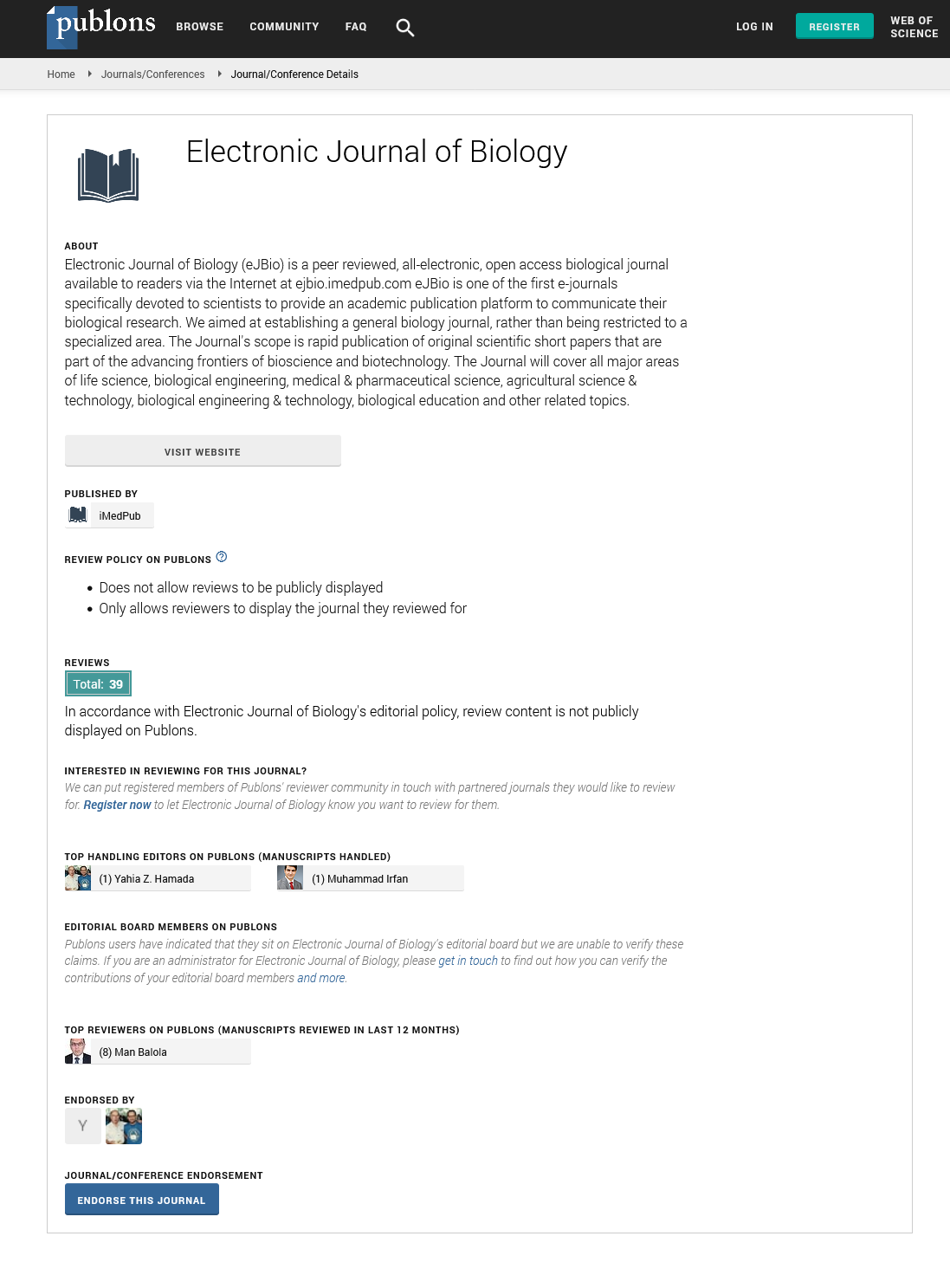Abstract
Understanding the Role of Mesenchymal Stem Cells in Infectious Diseases: Focus on Tuberculosis, Malaria, Sepsis and HIV
The mesenchymal stem cells (MSCs) are endowed with multi lineage differentiation potentials and selfrenewal properties, which qualify them as potential sources for cell transplantation and gene therapy. Numerous studies have shown that MSCs can be recruited to sites of inflammation, where they exert potent immune-suppressive activities that can be exploited for the development of immunotherapies. MSCs from several origins, including bone marrow and adipose tissue, have been well described. Adipose tissue derived MSCs (ASCs), like bone marrow derived (BM-MSCs), have the capacity to differentiate along multiple lineages at clonal levels. Now a day scientists have isolated and cultured MSC or MSCs like cells from various sites or organs of body other than bone marrow, including adipose tissue, amniotic fluid fetal tissues etc. with different phenotypic heterogeneity. They can differentiate into neurons, cardiomyocytes, chondrocytes, osteocytes, and adipocytes. Thus MSCs are of great interest in the area of tissue regeneration. Apart from these, MSCs like cells are also found from pathological tissues such as rheumatoid arthritic joint, lung granuloma of tuberculosis, splenomegaly of malaria etc. from human or rodent with bone morphogenetic protein receptors. And it has been reported that, MSCs have immunosuppressive effect by which it suppress T-cell proliferation and cytokine production showing immunomodulatory effect on MSCs or immune enhancement effect which is generated by chemokine-mediated immune cell aggregation in the absence of immunosuppressive effector molecules. Therefore, MSCs plays an important role in noninfectious and infectious diseases. Here in this review we are mainly focusing on the role of Mesenchymal stem cells in some infectious diseases.
Author(s):
Bhattacharya D, Ved Prakash Dwivedi, Mona, Vinod Yadav,Gobardhan Das
Abstract | Full-Text | PDF
Share this

Google scholar citation report
Citations : 5001
Electronic Journal of Biology received 5001 citations as per google scholar report
Electronic Journal of Biology peer review process verified at publons
Abstracted/Indexed in
- Google Scholar
- China National Knowledge Infrastructure (CNKI)
- CiteFactor
- Electronic Journals Library
- Zoological Records
- WorldCat
- Proquest Summons
- Publons
- MIAR
- Openaccessarticles.com
- Secret Search Engine Labs
Open Access Journals
- Aquaculture & Veterinary Science
- Chemistry & Chemical Sciences
- Clinical Sciences
- Engineering
- General Science
- Genetics & Molecular Biology
- Health Care & Nursing
- Immunology & Microbiology
- Materials Science
- Mathematics & Physics
- Medical Sciences
- Neurology & Psychiatry
- Oncology & Cancer Science
- Pharmaceutical Sciences


